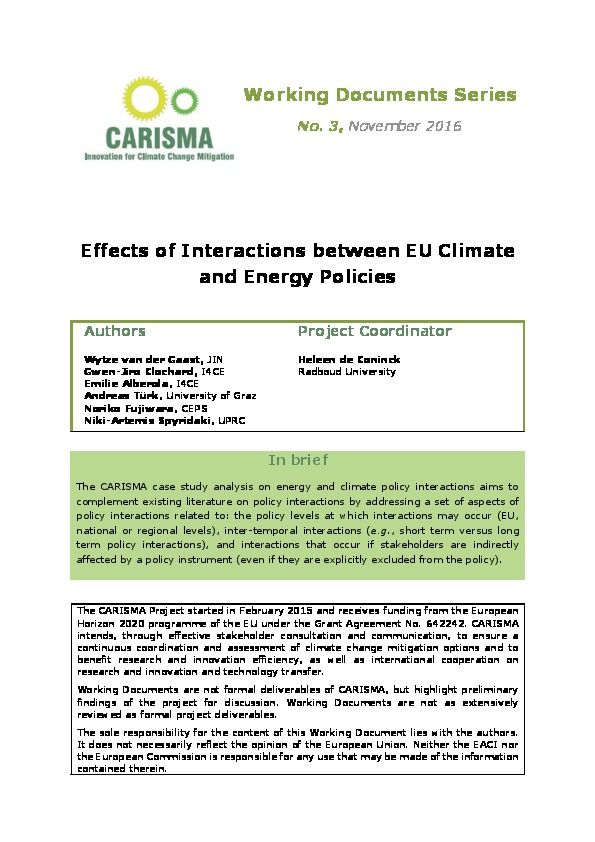Effects of Interactions between EU Climate and Energy Policies
The CARISMA case study analysis on energy and climate policy interactions aims to complement existing literature on policy interactions by addressing a set of aspects of policy interactions related to: the policy levels at which interactions may occur (EU, national or regional levels), inter-temporal interactions (e.g., short term versus long term policy interactions), and interactions that occur if stakeholders are indirectly affected by a policy instrument (even if they are explicitly excluded from the policy).
Four cases studies have been analysed :
- France: Impact of the implementation of the RED and energy efficiency measures on GHG emissions in in the electricity sector under the EU ETS.
- Austria: Interaction between energy efficiency policy measures at the levels of the federal and regional governments.
- Greece: Impact of the planned Energy Efficiency Obligation scheme in Greece on the GHG emissions in the Greek power sector covered by the EU ETS.
- EU-level: Implications of interaction between the EU ETS and the Renewable Energy Directive
Authors: Wytze van der Gaast, JIN; Gwen-Jiro Clochard and Emilie Alberola, I4CE ; Andreas Türk, University of Graz ; Noriko Fujiwara, CEPS; and Niki-Artemis Spyridaki, UPRC
